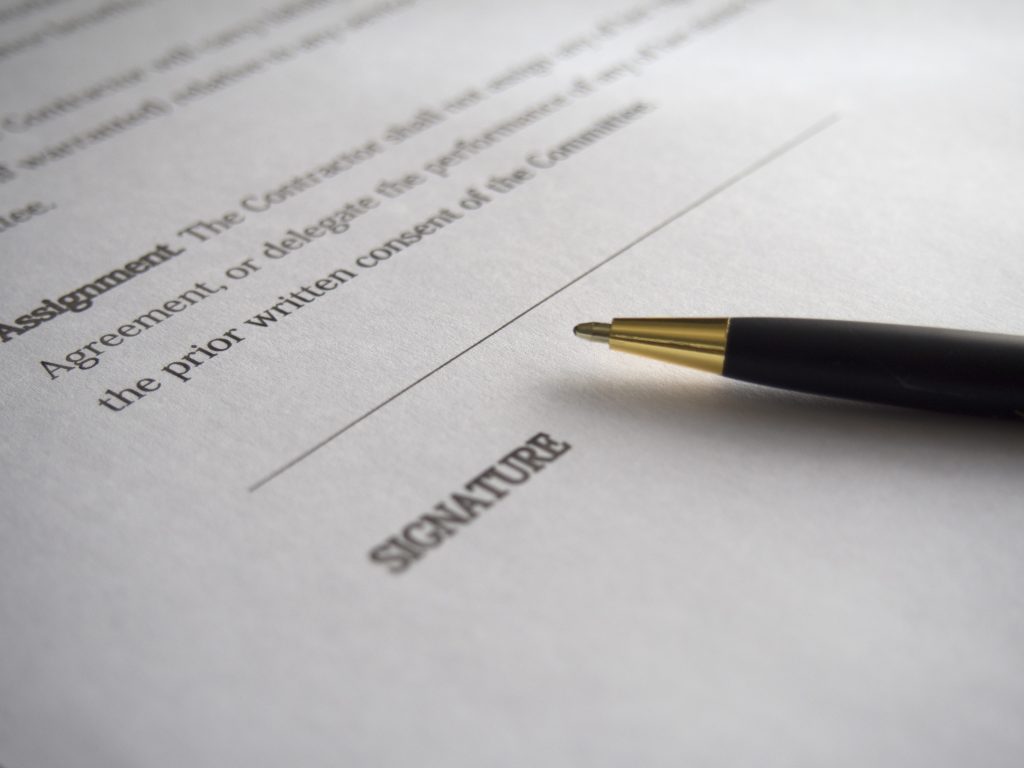 Offshore drilling platforms enable petroleum companies to access oil deposits beneath the ocean floor. Although these platforms are anchored to the sea floor, they are technically movable and can be relocated. Whether a platform is considered “immovable property” under Louisiana law became a central issue in a case involving an injured worker because different prescription periods apply to personal injury claims depending on the nature of the property at which the injury occurred.
Offshore drilling platforms enable petroleum companies to access oil deposits beneath the ocean floor. Although these platforms are anchored to the sea floor, they are technically movable and can be relocated. Whether a platform is considered “immovable property” under Louisiana law became a central issue in a case involving an injured worker because different prescription periods apply to personal injury claims depending on the nature of the property at which the injury occurred.
In 2002, McDermott, Inc. designed and delivered the Front Runner Spar, an offshore facility used for removing and processing petroleum from the seabed of the Gulf of Mexico, to Murphy Exploration & Production Company. Murphy affixed the platform to the sea floor at the edge of the continental shelf offshore from Louisiana. James Hefren was hired by Murphy as the lead operator. In June, 2011, Hefren was injured when he was struck in the face by the flange of a valve. He filed a lawsuit suit against Murphy for negligence under the Jones Act, as well as specifically alleging that McDermott failed to properly design and construct the facility. The U.S. District Court for the Western District of Louisiana entered summary judgment for Murphy, dismissing Hefren’s tort claims as barred by the exclusive remedy provision of the Longshore & Harbor Workers’ Compensation Act.
McDermott filed a motion for summary judgment arguing that Hefren’s claims were barred by Louisiana’s rule that actions arising out of deficiencies in construction or design must be brought within five years after the date the property was accepted by the owner. See La. R.S. 9:2772. Holding that the Front Runner Spar was an “immovable object” under Louisiana law, and considering that nine years had passed between Murphy’s acceptance of the facility and the date Hefren’s lawsuit was filed, the district court dismissed the claim against McDermott.
 Louisiana Personal Injury Lawyer Blog
Louisiana Personal Injury Lawyer Blog


 Often, in litigation – as in life generally – timing is everything. Courts and legislatures set certain time periods for each step in a legal proceeding to establish fairness and to impose reasonable order on the disposition of the case. Occasionally, these deadlines can be ambiguous or open to various interpretations. Louisiana’s Second Circuit Court of Appeal considered such a situation in a medical malpractice case.
Often, in litigation – as in life generally – timing is everything. Courts and legislatures set certain time periods for each step in a legal proceeding to establish fairness and to impose reasonable order on the disposition of the case. Occasionally, these deadlines can be ambiguous or open to various interpretations. Louisiana’s Second Circuit Court of Appeal considered such a situation in a medical malpractice case. Christmas is usually a busy time for families, especially those traveling to visit loved ones. For many businesses it is also a time for increased sales and higher profits. For this reason, it is common for companies to set strict targets and deadlines for employees to meet in order to capitalize on the opportunity. Such deadlines, however, can be dangerous if they push employees beyond their capacities for safety.
Christmas is usually a busy time for families, especially those traveling to visit loved ones. For many businesses it is also a time for increased sales and higher profits. For this reason, it is common for companies to set strict targets and deadlines for employees to meet in order to capitalize on the opportunity. Such deadlines, however, can be dangerous if they push employees beyond their capacities for safety. Have you ever been in an accident where you were found at fault, but you know in your heart it wasn’t your fault? In this case, the trial court granted summary judgment in favor of the defendants because the plaintiffs failed to provide evidence that the driver of the car, in which they were passengers, was not at fault for the accident. The issue addressed by the Louisiana Court of Appeal in this case was the appropriate time for summary judgment.
Have you ever been in an accident where you were found at fault, but you know in your heart it wasn’t your fault? In this case, the trial court granted summary judgment in favor of the defendants because the plaintiffs failed to provide evidence that the driver of the car, in which they were passengers, was not at fault for the accident. The issue addressed by the Louisiana Court of Appeal in this case was the appropriate time for summary judgment. Parties are entitled to immediately appeal during litigation as long as a decision has been properly designated as the final judgment. However, the Louisiana First Circuit of Appeal (“the Court“) also has a policy against multiple appeals and piecemeal litigation. So, how does a system balance the right of parties to immediately appeal while considering the workload of the court? The following case discusses this issue regarding the appellate jurisdiction (the legal authority of a court to decide on a particular case).
Parties are entitled to immediately appeal during litigation as long as a decision has been properly designated as the final judgment. However, the Louisiana First Circuit of Appeal (“the Court“) also has a policy against multiple appeals and piecemeal litigation. So, how does a system balance the right of parties to immediately appeal while considering the workload of the court? The following case discusses this issue regarding the appellate jurisdiction (the legal authority of a court to decide on a particular case). An automobile accident is not a lottery ticket. It is not an opportunity to take a negligent party to court and “sue their pants off” in an effort to win a hefty money judgment sufficient to pay for a bed-and-breakfast getaway in Natchitoches. But it should not leave the plaintiff in the lurch, either, without enough money to even cover medical bills. And sometimes, when you strive for one, you end up missing out on the other. One Louisiana couple learned the limits of revenue-generating potential for automobile accidents the hard way.
An automobile accident is not a lottery ticket. It is not an opportunity to take a negligent party to court and “sue their pants off” in an effort to win a hefty money judgment sufficient to pay for a bed-and-breakfast getaway in Natchitoches. But it should not leave the plaintiff in the lurch, either, without enough money to even cover medical bills. And sometimes, when you strive for one, you end up missing out on the other. One Louisiana couple learned the limits of revenue-generating potential for automobile accidents the hard way. Trials are an economic drain on society. Though they serve an important role in our society, they are costly and time-consuming. As a result, courts cannot take every case to trial, and the judicial system must be selective. Thus, sometimes a court makes a judgment without a trial because there would be no purpose for a trial. These judgments are called summary judgments. Below is a case in which the Trial Court granted summary judgment because one of the parties did not even have a valid legal claim.
Trials are an economic drain on society. Though they serve an important role in our society, they are costly and time-consuming. As a result, courts cannot take every case to trial, and the judicial system must be selective. Thus, sometimes a court makes a judgment without a trial because there would be no purpose for a trial. These judgments are called summary judgments. Below is a case in which the Trial Court granted summary judgment because one of the parties did not even have a valid legal claim. Trial courts can make mistakes. Some mistakes are permanent, so a redo is impossible. In other cases, the mistakes can be reversed on appeal by an appellate court. When an appellate court reverses a trial court’s decision, the trial court could have to revisit the entire case and put things in correct legal standing between the parties.
Trial courts can make mistakes. Some mistakes are permanent, so a redo is impossible. In other cases, the mistakes can be reversed on appeal by an appellate court. When an appellate court reverses a trial court’s decision, the trial court could have to revisit the entire case and put things in correct legal standing between the parties. Navigating a lawsuit is a difficult task. Not only do you have to prove the merits of the case, but you also have to navigate the judicial system’s complex procedural requirements. Even if your case seems likely to succeed on the merits, failure to comply with procedural requirements can leave you without recourse.
Navigating a lawsuit is a difficult task. Not only do you have to prove the merits of the case, but you also have to navigate the judicial system’s complex procedural requirements. Even if your case seems likely to succeed on the merits, failure to comply with procedural requirements can leave you without recourse.  Around 9am on Saturday, October 12 the Hard Rock Hotel partially collapsed over Canal Street in New Orleans after the top six to eight floors buckled onto the structure. According to New Orleans Fire Department Superintendent Tim McConnel, the remaining structure of the building remains unstable and could possibly collapse entirely. In response, nearby buildings have been evacuated as the two construction cranes are also unstable. Currently, one person has been reported dead, eighteen have been taking to the hospital in unspecified conditions, and two workers are still reported missing. In terms of the next steps to be taken, it is unknown just how long it will take crews to clean up the piles of debris and get the project back on schedule. This is particularly stressful for the city of New Orleans considering the site of the collapse is a major transportation hub for the city – consisting of bus and streetcar lines in addition to the major traffic arteries of the city. An accident such as the Hard Rock Hotel accident will impact much more upon closer inspection spanning to issues such a personal injury, workers compensation, wrongful death, and much more. Considering the complex litigation that can arise out of an incident such as this one it is important to have a good attorney at the ready.
Around 9am on Saturday, October 12 the Hard Rock Hotel partially collapsed over Canal Street in New Orleans after the top six to eight floors buckled onto the structure. According to New Orleans Fire Department Superintendent Tim McConnel, the remaining structure of the building remains unstable and could possibly collapse entirely. In response, nearby buildings have been evacuated as the two construction cranes are also unstable. Currently, one person has been reported dead, eighteen have been taking to the hospital in unspecified conditions, and two workers are still reported missing. In terms of the next steps to be taken, it is unknown just how long it will take crews to clean up the piles of debris and get the project back on schedule. This is particularly stressful for the city of New Orleans considering the site of the collapse is a major transportation hub for the city – consisting of bus and streetcar lines in addition to the major traffic arteries of the city. An accident such as the Hard Rock Hotel accident will impact much more upon closer inspection spanning to issues such a personal injury, workers compensation, wrongful death, and much more. Considering the complex litigation that can arise out of an incident such as this one it is important to have a good attorney at the ready.